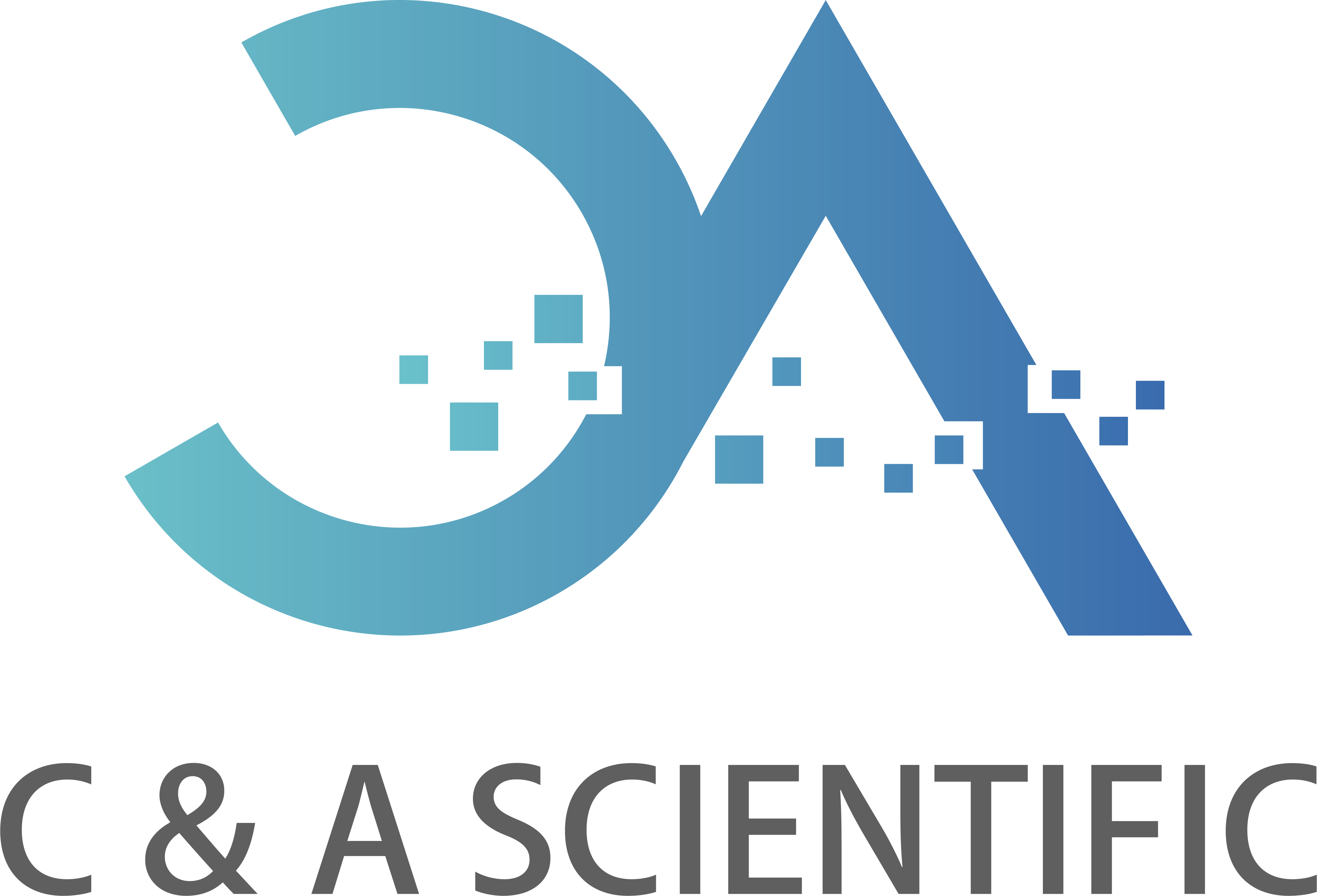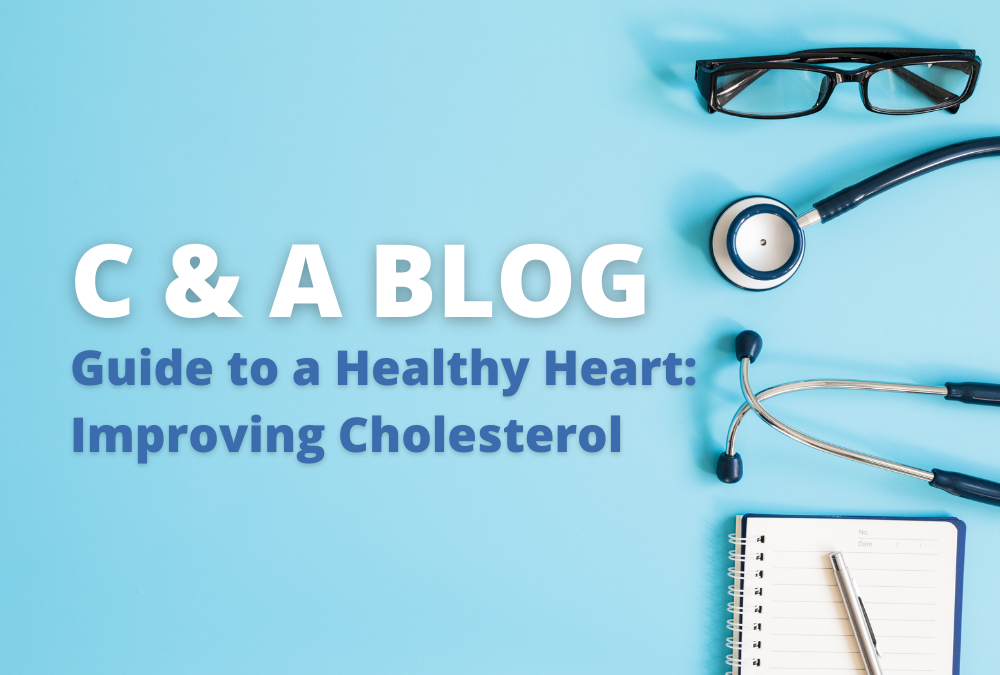
TABLE OF CONTENTS
- Understanding Cholesterol
- What is Cholesterol?
- Bad Cholesterol
- Good Cholesterol
- Underlying Health Conditions
- Fix Your Diet to Improve Cholesterol
- Take Fatty Acids
- Increase Soluble Fiber
- Minimize Saturated and Trans Fats
- Exercise to Improve Cholesterol
- Types of Exercise
- Drop Bad Habits to Improve Cholesterol
- Quit Smoking
- Minimize Alcohol Intake
- Improve Cholesterol Today
- C & A Scientific’s Mission
Improve your cholesterol levels to decrease your risk of heart disease and stroke. In honor of American Heart Month, C & A Scientific encourages you to learn about the dangers of high cholesterol. After reading this article, you will know how to improve your cholesterol and overall health.
Understanding Cholesterol
Avoid heart attacks later in life by keeping track of your cholesterol levels. Stable cholesterol levels are crucial for keeping your arteries in good condition. Let’s dive deeper into cholesterol and how it can benefit or harm the body.
What is Cholesterol?
Cholesterol is a substance found in all the cells in your body that resemble fat but can’t be burned for energy. Naturally stemming from the liver, blood cholesterol aids your body in building cells and creating hormones and vitamins.
The foods you consume, such as eggs, cheese, and milk, provide dietary cholesterol. Since your body naturally creates the cholesterol it needs to function, this supplemental form can create health problems if consumed in high amounts.
Let’s look at the two types of cholesterol and how they impact the body.
Good Cholesterol
Lipoproteins are any substance that contains both lipids and protein. Lipids are fats, and cholesterol is a lipid. Lipoproteins carry the cholesterol through lymphatic fluid and the bloodstream because cholesterol cannot travel in the blood without a protein.
Good cholesterol, or high-density lipoprotein (HDL), soaks up the cholesterol in your blood to carry and return it to the liver. Removing excess cholesterol from your bloodstream prevents it from pooling in your arteries, which can cause heart disease or stroke.

Bad Cholesterol
Bad cholesterol, also known as low-density lipoprotein (LDL), creates plaque that clogs the arteries and causes them to narrow. Heart disease and stroke are more likely to occur when you have clogged arteries.
Underlying Health Conditions
Those with underlying health conditions like high blood pressure, kidney disease, diabetes, and liver disease may also experience high cholesterol.
If your family has a history of heart disease or stroke, you may also be at risk of high cholesterol.
Here are some tips to improve your cholesterol and prevent heart complications:
Fix Your Diet to Improve Cholesterol
Change your diet to improve your cholesterol by:
- Eating foods with omega-3 fatty acids
- Increasing soluble fiber
- Minimizing saturated fats
- Eliminating trans fats
Take Fatty Acids
Omega-3 Fatty Acids are nutrients that improve the function of cell membranes and cell receptors in the body. Two common Omega-3 Fatty Acids in fish, nuts, and seeds are Eicosapentaenoic Acid (EPA) and Docosahexaenoic acid (DHA).

Increase Soluble Fiber
Soluble fiber is good for cholesterol because it binds to the small intestine. Soluble fiber is in:
- Oats
- Peas
- Beans
- Apples
- Citrus
- Fruits
- Carrots
- Barley
Other foods rich in soluble fiber include black beans, lima beans, and sweet potatoes.

Minimize Saturated and Trans Fats
Minimizing saturated fats is also a great way to improve your cholesterol. Butter, oil, and cakes are saturated, and trans fats can increase LDL or bad cholesterol in your blood. Removing fast food from your diet is an excellent way to limit saturated fats.

Exercise to Lower Cholesterol
Exercising most days of the week is excellent for maintaining good cholesterol levels. Even if you can’t commit to intensive exercise, daily physical activity such as stretching can benefit your cholesterol and general health.
Reduce sedentary time by discovering an active hobby you enjoy. An activity as simple as walking can benefit your health and well-being.

Types of Exercise
Walking provides an extensive range of benefits, including:
- Improving blood flow
- Controlling blood sugar
- Maintaining weight
- Lowering cholesterol
Walking lowers cholesterol by stimulating enzymes that transport LDL cholesterol from the blood to the liver. It is also a great form of exercise because you can do it virtually anywhere, it is friendly for people of all ages, and it is a form of exercise that is easy on the joints.
Other types of exercise that actively work to raise HDL or good cholesterol include running, swimming, and cycling. Consistency is vital to improving cholesterol levels. After a month of exercising, your LDL cholesterol levels will return to normal.
Drop Bad Habits to Improve Cholesterol

Quit Smoking
Smoking lowers your high-density lipoprotein (HDL) or good cholesterol levels. When this occurs, LDL cholesterol sticks to your artery walls and clogs them.
Once you quit smoking, your heart health will improve immediately. Twenty minutes after stopping, your blood pressure and heart rate will recover.
After three months, your blood circulation will recover. After a year of no smoking, you will have a 50% less chance of developing heart disease.

Minimize Alcohol Intake
Drinking alcohol leads to high levels of HDL cholesterol. Women of all ages should only drink one glass of alcohol per day, and men, two glasses.
Quitting drinking can improve more than just cholesterol — it’s excellent for enhancing the health of your liver and kidneys as well.
Improve Cholesterol Today
Improving your cholesterol and heart health begins with slight adjustments to your daily habits. Once you understand the positive and negative effects of cholesterol, you can work to fix your diet, exercise, and drop bad habits such as drinking and smoking.
Implement these practices today to provide yourself with a happy and healthy future!
C & A Scientific’s Mission
C & A Scientific is passionate about improving the health and minds of people worldwide, and we encourage you to look for more ways to improve your cholesterol and heart health today.
Check out our Medical Catalog to learn more about what we provide at C & A Scientific! We source a wide range of medical products to aid in classrooms, laboratories, or research facilities.

C & A Scientific is a dedicated leader in improving the health and minds of people worldwide. We supply over 700 medical and STEM-inspired products to distributors and retailers seeking sensational customer service. Learn more about us and our story here.

